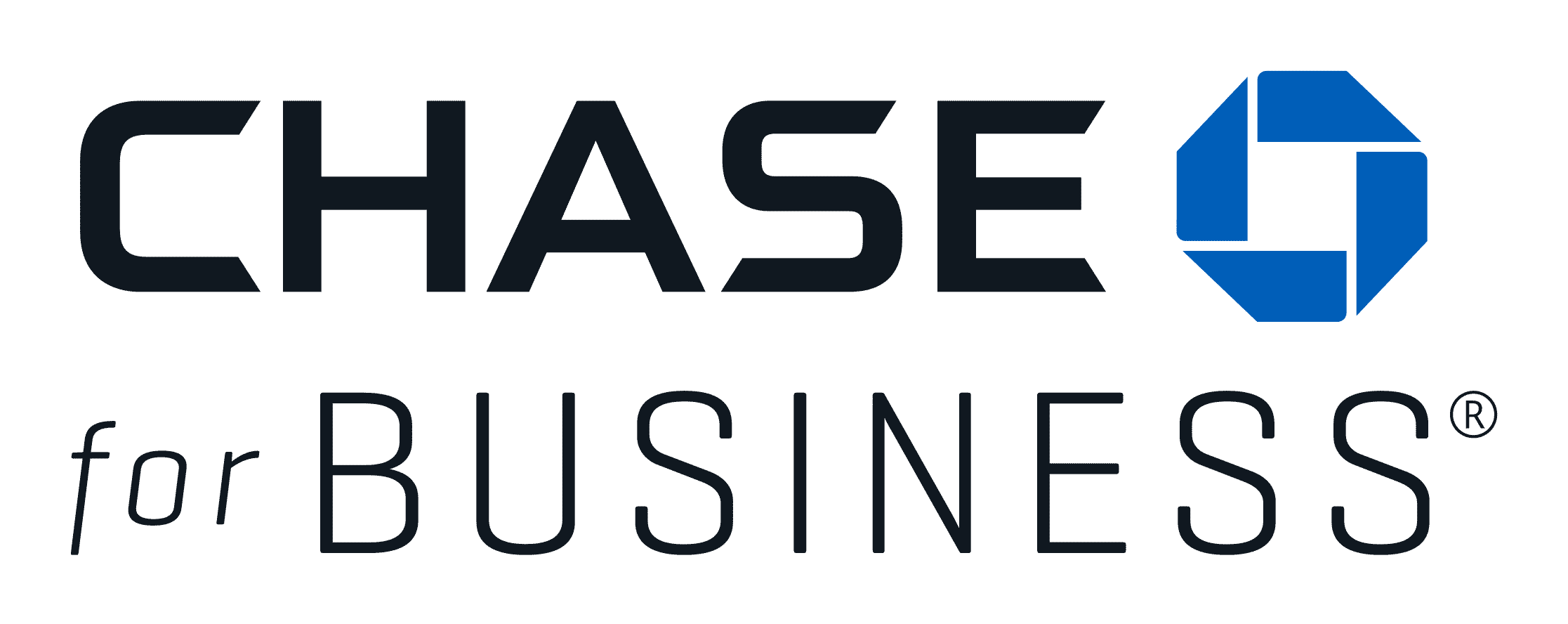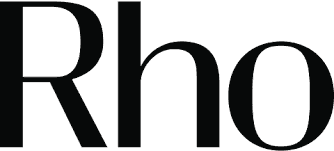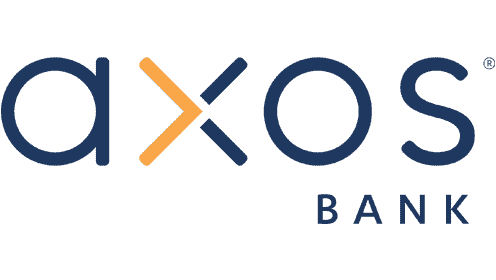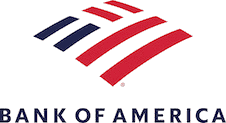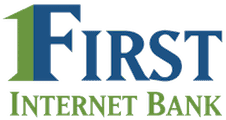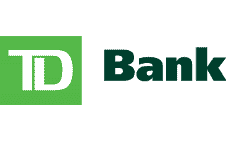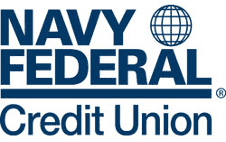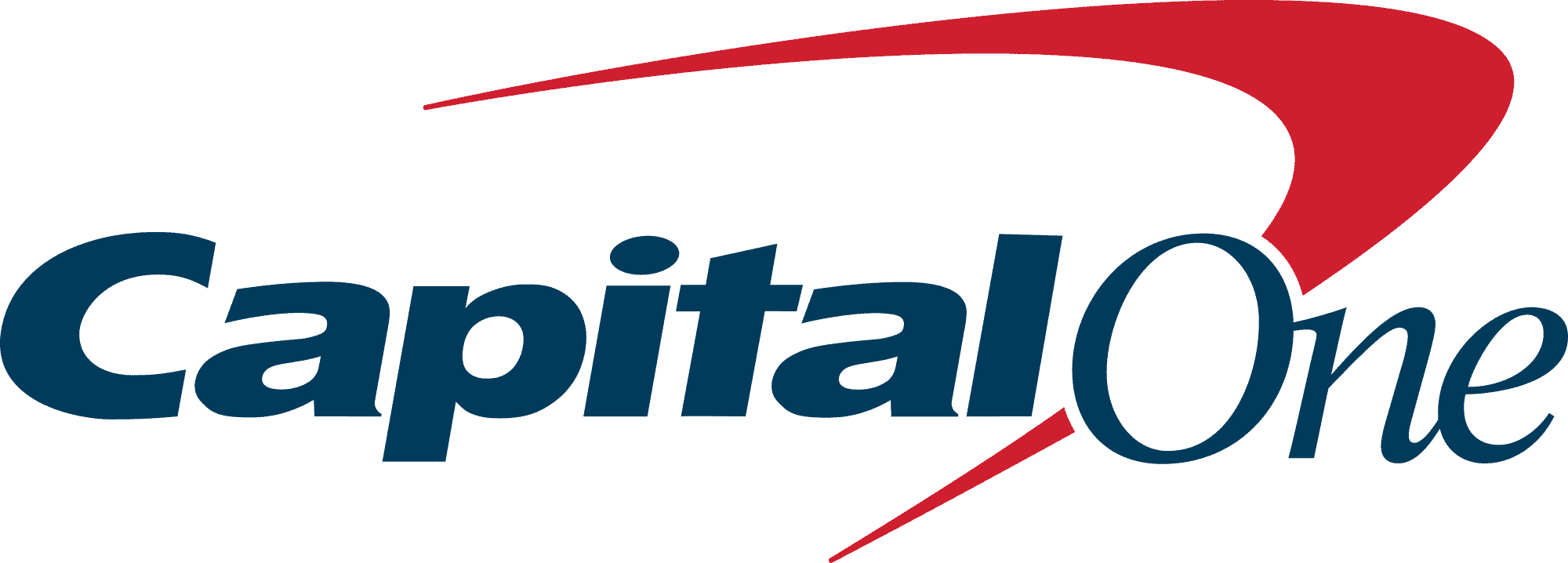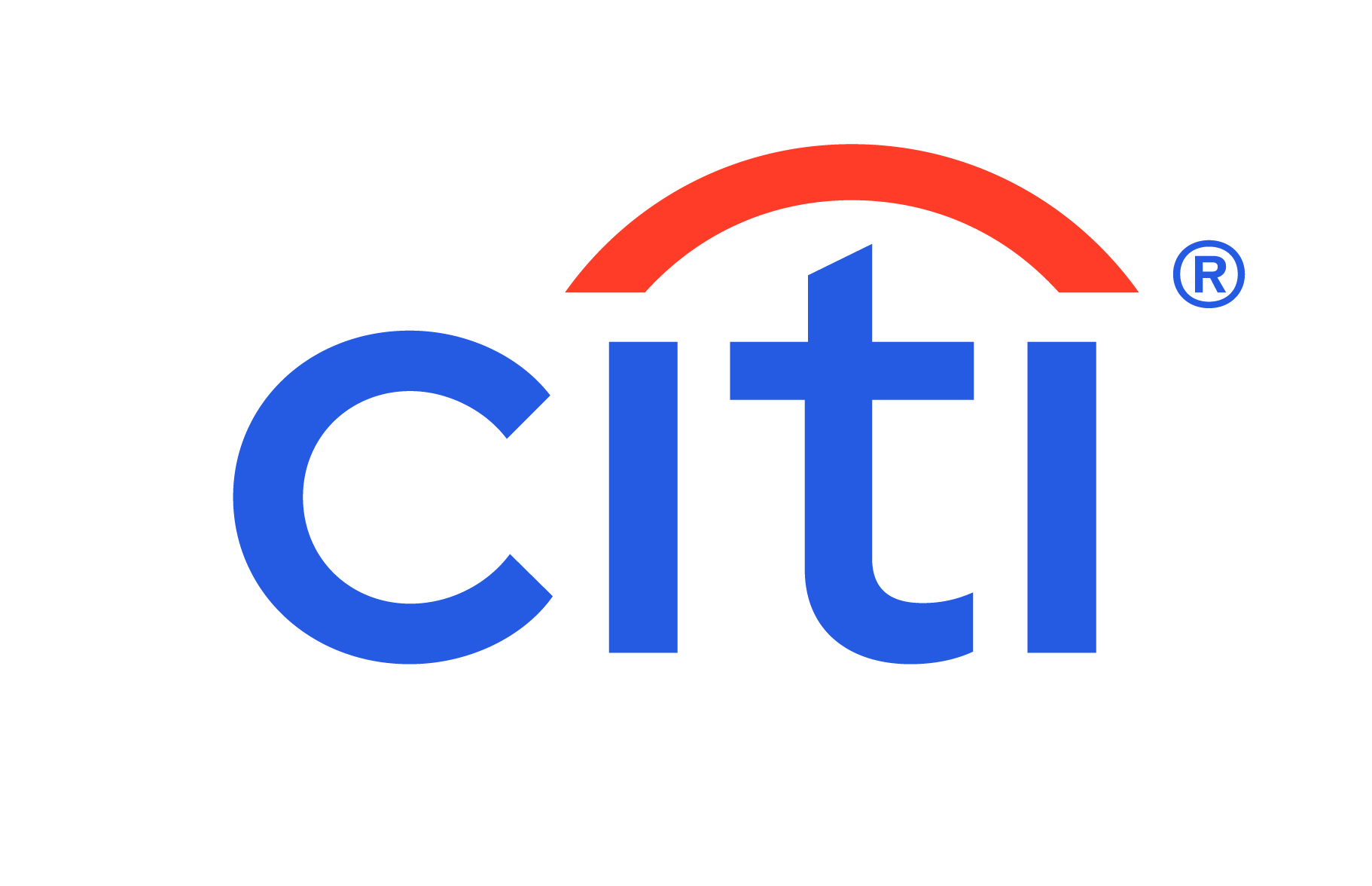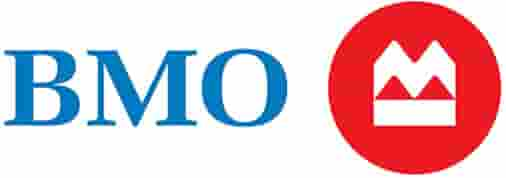Best Business Bank Accounts to Open Online of March 2026
Get personalized matches in seconds
Bank Account Finder
Here are your recommended bank accounts:
We couldn’t find any matches based on your preferences.
-
Default
-
NerdWallet rating (High to Low)
-
APY (High to Low)
-
Monthly fee (Low to High)
U.S. Bank Business Essentials
Requirements to qualify Best free account
at U.S. Bank, Member FDIC
Pros
- No monthly service fee.
- Welcome bonus for new customers (terms apply).
- Unlimited fee-free electronic and debit card transactions.
- Receive and send payments via Zelle.
- Accept payments with free mobile card reader, no monthly software fee. Processing fees apply.
Cons
- $100 minimum opening deposit.
- Fee for using out-of-network ATMs.
- High overdraft, wire transfer fees.
- $1 fee for outgoing domestic ACH transfers.
Up to 250 free cash deposit units per statement cycle.
U.S. Bank Business Essentials
Requirements to qualify Best free account
at U.S. Bank, Member FDIC
Pros
- No monthly service fee.
- Welcome bonus for new customers (terms apply).
- Unlimited fee-free electronic and debit card transactions.
- Receive and send payments via Zelle.
- Accept payments with free mobile card reader, no monthly software fee. Processing fees apply.
Cons
- $100 minimum opening deposit.
- Fee for using out-of-network ATMs.
- High overdraft, wire transfer fees.
- $1 fee for outgoing domestic ACH transfers.
Up to 250 free cash deposit units per statement cycle.
American Express® Business Checking
With $0 min. balance for APY
Requirements to qualify
at American Express National Bank, Member FDIC
Pros
- No monthly fee, minimum opening deposit or excess transaction fee.
- 24/7 customer support.
- No fees on withdrawals at more than 70,000 MoneyPass and Allpoint ATMs in the U.S.
- Earn 1 Membership Rewards® point for every $2 spent with your debit card.
Cons
- Can’t deposit cash.
- No outgoing international wire transfers.
- Does not offer jointly owned accounts.
No cash deposits.
American Express® Business Checking
With $0 min. balance for APY
Requirements to qualify
at American Express National Bank, Member FDIC
Pros
- No monthly fee, minimum opening deposit or excess transaction fee.
- 24/7 customer support.
- No fees on withdrawals at more than 70,000 MoneyPass and Allpoint ATMs in the U.S.
- Earn 1 Membership Rewards® point for every $2 spent with your debit card.
Cons
- Can’t deposit cash.
- No outgoing international wire transfers.
- Does not offer jointly owned accounts.
No cash deposits.
Chase Business Complete Banking®
Waived with $2,000 minimum balance
Requirements to qualify
at Chase, Member FDIC
Pros
- No minimum opening deposit.
- Unlimited fee-free electronic and debit card transactions.
- Integrated credit card processing.
- No overdraft fee unless account is overdrawn by more than $50; 24-hour grace period applies to overdrafts beyond that amount.
- No fees at 14,000 Chase ATMs and access to around 5,000 branches.
- Receive and send payments via Zelle.
Cons
- $15 monthly fee.
- Monthly limit on physical transactions (20).
- Fee for using out-of-network ATMs.
Up to $5,000 per month.
Chase Business Complete Banking®
Waived with $2,000 minimum balance
Requirements to qualify
at Chase, Member FDIC
Pros
- No minimum opening deposit.
- Unlimited fee-free electronic and debit card transactions.
- Integrated credit card processing.
- No overdraft fee unless account is overdrawn by more than $50; 24-hour grace period applies to overdrafts beyond that amount.
- No fees at 14,000 Chase ATMs and access to around 5,000 branches.
- Receive and send payments via Zelle.
Cons
- $15 monthly fee.
- Monthly limit on physical transactions (20).
- Fee for using out-of-network ATMs.
Up to $5,000 per month.
Bluevine Business Checking
With $0 min. balance for APY
Requirements to qualify
at Bluevine, Deposits are FDIC Insured
Pros
- No requited monthly fee, minimum opening deposit, excess transaction or overdraft fees.
- Earn 1.30% interest on account balances up to and including $250,000. Terms apply.
- Access up to $3 million in FDIC insurance with Insured Cash Sweep.
- No fees at MoneyPass ATMs.
- Bill pay tools and invoicing with built-in payment links, plus tap-to-pay card acceptance.
Cons
- No fee-free cash deposits.
- Fee for using out-of-network ATMs.
- Does not offer jointly-owned accounts.
Fees vary by location.
Bluevine Business Checking
With $0 min. balance for APY
Requirements to qualify
at Bluevine, Deposits are FDIC Insured
Pros
- No requited monthly fee, minimum opening deposit, excess transaction or overdraft fees.
- Earn 1.30% interest on account balances up to and including $250,000. Terms apply.
- Access up to $3 million in FDIC insurance with Insured Cash Sweep.
- No fees at MoneyPass ATMs.
- Bill pay tools and invoicing with built-in payment links, plus tap-to-pay card acceptance.
Cons
- No fee-free cash deposits.
- Fee for using out-of-network ATMs.
- Does not offer jointly-owned accounts.
Fees vary by location.
North One Standard Business Checking
With $0 min. balance for APY
Pros
- No monthly fees or excess transaction fees.
- Same-day deposits from Amazon, Cash App, Square, Stripe and Venmo. Direct payments supported from a variety of other business platforms, including Etsy, Lyft, Shopify and Airbnb.
- Sub-accounts that you can use to save for specific goals.
- Earn 2.5% APY on balances up to $250,000. Terms apply.
Cons
- No fee-free cash deposits.
- Can’t send or receive international wires.
- Not available to nonprofit organizations.
- No spend controls on employee debit cards.
NorthOne does not accept cash deposits
North One Standard Business Checking
With $0 min. balance for APY
Pros
- No monthly fees or excess transaction fees.
- Same-day deposits from Amazon, Cash App, Square, Stripe and Venmo. Direct payments supported from a variety of other business platforms, including Etsy, Lyft, Shopify and Airbnb.
- Sub-accounts that you can use to save for specific goals.
- Earn 2.5% APY on balances up to $250,000. Terms apply.
Cons
- No fee-free cash deposits.
- Can’t send or receive international wires.
- Not available to nonprofit organizations.
- No spend controls on employee debit cards.
NorthOne does not accept cash deposits
nbkc Business Account
at nbkc bank, Member FDIC
Pros
- No monthly fee, minimum opening deposit, excess transaction or overdraft fees.
- Up to $12 in monthly refunds for ATM fees charged by other banks worldwide.
- Unlimited cash deposits via MoneyPass and Allpoint ATMs.
- Accept contactless payments via the NBKC app (iOS only). Fees apply.
- Unlimited debit cards.
Cons
- Must pay a fee to use built-in software features via Autobooks.
Unlimited
nbkc Business Account
at nbkc bank, Member FDIC
Pros
- No monthly fee, minimum opening deposit, excess transaction or overdraft fees.
- Up to $12 in monthly refunds for ATM fees charged by other banks worldwide.
- Unlimited cash deposits via MoneyPass and Allpoint ATMs.
- Accept contactless payments via the NBKC app (iOS only). Fees apply.
- Unlimited debit cards.
Cons
- Must pay a fee to use built-in software features via Autobooks.
Unlimited
Rho Business Checking
Requirements to qualify
at Rho, Deposits are FDIC Insured
Pros
- No monthly fee, minimum opening deposit or excess transaction fee.
- Free same-day ACH transfers.
- Users can apply for the rewards-earning Rho Card, a corporate credit card with numerous expense control tools.
Cons
- No cash deposits or ATM access.
- Not available to sole proprietors.
Rho Business Checking
Requirements to qualify
at Rho, Deposits are FDIC Insured
Pros
- No monthly fee, minimum opening deposit or excess transaction fee.
- Free same-day ACH transfers.
- Users can apply for the rewards-earning Rho Card, a corporate credit card with numerous expense control tools.
Cons
- No cash deposits or ATM access.
- Not available to sole proprietors.
Brex Business Account
at Brex, Deposits are FDIC Insured
Pros
- No monthly fee, minimum opening deposit or excess transaction fee.
- Ability to put cash in a money market fund to earn yield.
- Includes rewards-earning Brex corporate credit card.
- Free domestic and international wire transfers.
Cons
- Can't deposit or withdraw cash.
- Only available to venture-backed startups and mid-market companies.
- Not available to sole proprietors or other unincorporated businesses.
Brex Business Account
at Brex, Deposits are FDIC Insured
Pros
- No monthly fee, minimum opening deposit or excess transaction fee.
- Ability to put cash in a money market fund to earn yield.
- Includes rewards-earning Brex corporate credit card.
- Free domestic and international wire transfers.
Cons
- Can't deposit or withdraw cash.
- Only available to venture-backed startups and mid-market companies.
- Not available to sole proprietors or other unincorporated businesses.
Mercury Business Bank Account
Requirements to qualify
at Mercury, Deposits are FDIC Insured
Pros
- Free domestic and international U.S. dollar wire transfers.
- Unlimited refunds on all domestic ATM fees.
- No monthly fee, minimum opening deposit, excess transaction fee on U.S. dollar transactions or overdraft fees.
- Users can apply for the rewards-earning Mercury IO Card, a corporate credit card with numerous expense control tools.
Cons
- Can’t deposit cash.
- Choice Financial Group, one of Mercury’s banking partners, is currently under a federal consent order.
No cash deposits.
Mercury Business Bank Account
Requirements to qualify
at Mercury, Deposits are FDIC Insured
Pros
- Free domestic and international U.S. dollar wire transfers.
- Unlimited refunds on all domestic ATM fees.
- No monthly fee, minimum opening deposit, excess transaction fee on U.S. dollar transactions or overdraft fees.
- Users can apply for the rewards-earning Mercury IO Card, a corporate credit card with numerous expense control tools.
Cons
- Can’t deposit cash.
- Choice Financial Group, one of Mercury’s banking partners, is currently under a federal consent order.
No cash deposits.
Relay Business Checking
at Relay, Deposits are FDIC Insured
Pros
- No required monthly fee, minimum opening deposit, excess transaction or overdraft fees.
- No foreign transaction fees when you use your Relay Visa® Debit abroad.
- Free incoming wires and low outgoing wire transfer fees.
- Up to 50 debit cards.
Cons
- No bill pay feature in the free plan.
- Thread Bank, Relay’s banking partner, is currently under an FDIC consent order.
Unlimited
Relay Business Checking
at Relay, Deposits are FDIC Insured
Pros
- No required monthly fee, minimum opening deposit, excess transaction or overdraft fees.
- No foreign transaction fees when you use your Relay Visa® Debit abroad.
- Free incoming wires and low outgoing wire transfer fees.
- Up to 50 debit cards.
Cons
- No bill pay feature in the free plan.
- Thread Bank, Relay’s banking partner, is currently under an FDIC consent order.
Unlimited
Axos Bank® Basic Business Checking
Requirements to qualify Unlimited transactions
at Axos Bank®, Member FDIC
Pros
- No monthly fee, minimum opening deposit or excess transaction fee.
- Cash deposits at compatible ATMs.
- Automatic refunds of all ATM fees (domestic).
- Welcome bonus for new customers (terms apply).
Cons
- $25 fee for insufficient funds/uncollected funds returned.
- No third-party app integrations.
Unlimited
Axos Bank® Basic Business Checking
Requirements to qualify Unlimited transactions
at Axos Bank®, Member FDIC
Pros
- No monthly fee, minimum opening deposit or excess transaction fee.
- Cash deposits at compatible ATMs.
- Automatic refunds of all ATM fees (domestic).
- Welcome bonus for new customers (terms apply).
Cons
- $25 fee for insufficient funds/uncollected funds returned.
- No third-party app integrations.
Unlimited
Found Small Business Banking
Terms Apply¹
None Required*
Bonus Terms Apply²
at Lead Bank, Deposits are FDIC Insured
Pros
- No required monthly fee*, minimum opening deposit, excess transaction or overdraft fees.
- Free, built-in invoicing, bookkeeping and tax-planning features.
- Built-in payroll features for contractors.
- Can manage up to 5 businesses from a single login.
Cons
- No weekend or after-hours phone support.
- Not available to partnerships or nonprofit organizations.
$1.75 fee per deposit
Found Small Business Banking
Terms Apply¹
None Required*
Bonus Terms Apply²
at Lead Bank, Deposits are FDIC Insured
Pros
- No required monthly fee*, minimum opening deposit, excess transaction or overdraft fees.
- Free, built-in invoicing, bookkeeping and tax-planning features.
- Built-in payroll features for contractors.
- Can manage up to 5 businesses from a single login.
Cons
- No weekend or after-hours phone support.
- Not available to partnerships or nonprofit organizations.
$1.75 fee per deposit
Grasshopper Innovator Business Checking Account
With $25,000 min. balance for APY
Cash back on debit
at Grasshopper Bank, Member FDIC
Pros
- Unlimited 1% cash back on qualified debit card purchases.
- Earn up to 1.35% APY.
- No monthly fees, transaction fees or overdraft charges.
- Free, built-in bookkeeping and invoicing software.
- Low fees on wire transfers.
- All account holders are assigned to a dedicated banker or customer support representative.
Cons
- $100 minimum opening deposit.
No cash deposits.
Grasshopper Innovator Business Checking Account
With $25,000 min. balance for APY
Cash back on debit
at Grasshopper Bank, Member FDIC
Pros
- Unlimited 1% cash back on qualified debit card purchases.
- Earn up to 1.35% APY.
- No monthly fees, transaction fees or overdraft charges.
- Free, built-in bookkeeping and invoicing software.
- Low fees on wire transfers.
- All account holders are assigned to a dedicated banker or customer support representative.
Cons
- $100 minimum opening deposit.
No cash deposits.
Bank of America® Business Advantage Fundamentals™ Banking
$0 for the first 12 statement cycles.
Requirements to qualify
at Bank of America, N.A., Member FDIC
Pros
- No monthly fee for the first 12 statement cycles.
- Welcome offer for new accountholders.
- Loyalty perks via Preferred Rewards for Business program.
- Relatively low overdraft fees ($10 per item, limited to two per day)
- Bill pay includes invoicing for new users.
Cons
- $100 minimum opening deposit.
- Fee for using out-of-network ATMs.
- $16 monthly fee after introductory period ends.
Up to $5,000 per statement cycle.
Bank of America® Business Advantage Fundamentals™ Banking
$0 for the first 12 statement cycles.
Requirements to qualify
at Bank of America, N.A., Member FDIC
Pros
- No monthly fee for the first 12 statement cycles.
- Welcome offer for new accountholders.
- Loyalty perks via Preferred Rewards for Business program.
- Relatively low overdraft fees ($10 per item, limited to two per day)
- Bill pay includes invoicing for new users.
Cons
- $100 minimum opening deposit.
- Fee for using out-of-network ATMs.
- $16 monthly fee after introductory period ends.
Up to $5,000 per statement cycle.
First Internet Bank Do More Business™ Checking
With $10,000 min. balance for APY
at First Internet Bank, Member FDIC
Pros
- No monthly fee, minimum opening deposit, excess transaction or overdraft fees.
- Up to $10 in monthly refunds for ATM fees charged by other banks.
- APY of 0.50% with an average daily balance of $10,000 or more.
- Receive and send payments via Zelle.
Cons
- No cash deposits.
- $15 fee for incoming wires.
First Internet Bank Do More Business™ Checking
With $10,000 min. balance for APY
at First Internet Bank, Member FDIC
Pros
- No monthly fee, minimum opening deposit, excess transaction or overdraft fees.
- Up to $10 in monthly refunds for ATM fees charged by other banks.
- APY of 0.50% with an average daily balance of $10,000 or more.
- Receive and send payments via Zelle.
Cons
- No cash deposits.
- $15 fee for incoming wires.
Citizens Bank Clearly Better Business Checking®
$2.50 per $1,000 coin and currency deposited
Citizens Bank Clearly Better Business Checking®
$2.50 per $1,000 coin and currency deposited
TD Business Simple Checking℠
Requirements to qualify
Pros
- Some branches are open late and on weekends, including Sundays.
- No overdraft fee unless account is overdrawn by more than $50; 24-hour grace period applies to overdrafts beyond that amount.
- No fees at 2,600 TD Bank ATMs and access to 1,100 branches.
- Receive and send payments via Zelle.
Cons
- No free business checking account option.
- Accounts only available in 15 states and the District of Columbia.
Up to $5,000 per month.
TD Business Simple Checking℠
Requirements to qualify
Pros
- Some branches are open late and on weekends, including Sundays.
- No overdraft fee unless account is overdrawn by more than $50; 24-hour grace period applies to overdrafts beyond that amount.
- No fees at 2,600 TD Bank ATMs and access to 1,100 branches.
- Receive and send payments via Zelle.
Cons
- No free business checking account option.
- Accounts only available in 15 states and the District of Columbia.
Up to $5,000 per month.
Novo Business Checking
at Novo, Deposits are FDIC Insured
Pros
- No monthly fee, minimum opening deposit, excess transaction or overdraft fees.
- $7 per month in ATM fee refunds.
- Direct integrations with Etsy, eBay, Amazon and WooCommerce.
- Built-in invoicing and automatic P&L generation.
Cons
- Can’t deposit cash.
- Not all customers can send domestic wire transfers.
- No customer support by phone unless you're reporting fraud.
- No bill pay feature.
- Does not offer jointly owned accounts.
- No spend controls on employee debit cards.
No cash deposits.
Novo Business Checking
at Novo, Deposits are FDIC Insured
Pros
- No monthly fee, minimum opening deposit, excess transaction or overdraft fees.
- $7 per month in ATM fee refunds.
- Direct integrations with Etsy, eBay, Amazon and WooCommerce.
- Built-in invoicing and automatic P&L generation.
Cons
- Can’t deposit cash.
- Not all customers can send domestic wire transfers.
- No customer support by phone unless you're reporting fraud.
- No bill pay feature.
- Does not offer jointly owned accounts.
- No spend controls on employee debit cards.
No cash deposits.
Navy Federal Credit Union Business Checking
With $0 min. balance for APY
Pros
- No monthly fee and unlimited fee-free electronic transactions.
- No dollar limit on cash deposits (other limits may apply).
- 24/7 member service.
- No fees to deposit cash at Navy Federal or Co-Op Network ATMs.
Cons
- High opening deposit (up to $255).
- $29 fee for overdrafts, insufficient funds.
- Eligibility limited to veterans, military members, Department of Defense employees and their families.
- Does not offer jointly owned accounts.
- No spend controls on employee debit cards.
Unlimited
Navy Federal Credit Union Business Checking
With $0 min. balance for APY
Pros
- No monthly fee and unlimited fee-free electronic transactions.
- No dollar limit on cash deposits (other limits may apply).
- 24/7 member service.
- No fees to deposit cash at Navy Federal or Co-Op Network ATMs.
Cons
- High opening deposit (up to $255).
- $29 fee for overdrafts, insufficient funds.
- Eligibility limited to veterans, military members, Department of Defense employees and their families.
- Does not offer jointly owned accounts.
- No spend controls on employee debit cards.
Unlimited
Capital One Business Basic Checking®
Waived with $2,000 minimum balance
Requirements to qualify
at Capital One, Member FDIC
Pros
- Unlimited fee-free digital transactions, including mobile deposits, ACH transfers and some bill pay.
- Full suite of business services, including business credit cards and loans.
- No fees at nearly 80,000 ATMs, including the Capital One, MoneyPass and Allpoint networks.
- No fee on cash deposits at Capital One and select Allpoint ATMs.
Cons
- No free business checking account options.
- Potential for up to 4 overdraft fees per day.
$5,000 included monthly at no charge; $1 for every $1,000 deposited after that
Capital One Business Basic Checking®
Waived with $2,000 minimum balance
Requirements to qualify
at Capital One, Member FDIC
Pros
- Unlimited fee-free digital transactions, including mobile deposits, ACH transfers and some bill pay.
- Full suite of business services, including business credit cards and loans.
- No fees at nearly 80,000 ATMs, including the Capital One, MoneyPass and Allpoint networks.
- No fee on cash deposits at Capital One and select Allpoint ATMs.
Cons
- No free business checking account options.
- Potential for up to 4 overdraft fees per day.
$5,000 included monthly at no charge; $1 for every $1,000 deposited after that
PNC Business Checking
Waived with $500 average monthly balance
Requirements to qualify
Pros
- Monthly fees waived for the first three months after account opening.
- Welcome bonus for new customers.
- No fees at 60,000 PNC ATMs, plus 2,600 branch locations.
- Earn cash back at select merchants with PNC Purchase Payback.
- Receive and send payments via Zelle.
- Account holders are assigned to a dedicated banker or customer support representative.
Cons
- No free business checking account options.
- Limit of 150 fee-free transactions per month.
- Very high wire transfer fees.
Up to $5,000 per month.
PNC Business Checking
Waived with $500 average monthly balance
Requirements to qualify
Pros
- Monthly fees waived for the first three months after account opening.
- Welcome bonus for new customers.
- No fees at 60,000 PNC ATMs, plus 2,600 branch locations.
- Earn cash back at select merchants with PNC Purchase Payback.
- Receive and send payments via Zelle.
- Account holders are assigned to a dedicated banker or customer support representative.
Cons
- No free business checking account options.
- Limit of 150 fee-free transactions per month.
- Very high wire transfer fees.
Up to $5,000 per month.
Huntington Business Checking 100
Requirements to qualify
Pros
- No monthly service fee for Business Checking 100 account.
- No overdraft fee unless account is overdrawn by more than $50; 24-hour grace period applies to overdrafts beyond that amount.
- Welcome bonus for new customers (terms apply).
- No fees at 1,600 Huntington ATMs and access to 1,000 branches.
- Receive and send payments via Zelle.
Cons
- Fee for using out-of-network ATMs.
- Accounts only available in 11 states.
- Limit of $2,500 in free cash deposits per month.
Up to $2,500 per month.
Huntington Business Checking 100
Requirements to qualify
Pros
- No monthly service fee for Business Checking 100 account.
- No overdraft fee unless account is overdrawn by more than $50; 24-hour grace period applies to overdrafts beyond that amount.
- Welcome bonus for new customers (terms apply).
- No fees at 1,600 Huntington ATMs and access to 1,000 branches.
- Receive and send payments via Zelle.
Cons
- Fee for using out-of-network ATMs.
- Accounts only available in 11 states.
- Limit of $2,500 in free cash deposits per month.
Up to $2,500 per month.
Lili Core Business Checking
at Lili, Deposits are FDIC Insured
Pros
- No monthly fees, transaction fees or incoming wire fees.
- No fees at MoneyPass ATMs.
- Cash deposits via Green Dot network (fees and limits apply).
- Early payment feature allows you to receive funds up to two days sooner than with a traditional bank account.
- Direct integrations with Square, Shopify, Etsy and eBay.
Cons
- Fee for using out-of-network ATMs.
- No fee-free cash deposits.
- Bill pay not included; must upgrade to Lili Smart or higher.
- No spend controls on employee debit cards.
Fee of up to $4.95 per cash deposit.
Lili Core Business Checking
at Lili, Deposits are FDIC Insured
Pros
- No monthly fees, transaction fees or incoming wire fees.
- No fees at MoneyPass ATMs.
- Cash deposits via Green Dot network (fees and limits apply).
- Early payment feature allows you to receive funds up to two days sooner than with a traditional bank account.
- Direct integrations with Square, Shopify, Etsy and eBay.
Cons
- Fee for using out-of-network ATMs.
- No fee-free cash deposits.
- Bill pay not included; must upgrade to Lili Smart or higher.
- No spend controls on employee debit cards.
Fee of up to $4.95 per cash deposit.
QuickBooks Money
With $0 min. balance for APY
Pros
- Account holders can set money aside for specific purposes and earn 3% APY on it.
- Built-in invoicing.
- Built-in payment processing, which means same-day availability for some funds.
Cons
- Only four free ATM withdrawals per month; $3 per withdrawal after that.
- Does not offer jointly owned accounts.
- Only one debit card per account.
Fees of up to $5.95 may be collected by retailers when depositing cash to your account at their locations.
QuickBooks Money
With $0 min. balance for APY
Pros
- Account holders can set money aside for specific purposes and earn 3% APY on it.
- Built-in invoicing.
- Built-in payment processing, which means same-day availability for some funds.
Cons
- Only four free ATM withdrawals per month; $3 per withdrawal after that.
- Does not offer jointly owned accounts.
- Only one debit card per account.
Fees of up to $5.95 may be collected by retailers when depositing cash to your account at their locations.
Pros
- Free business checking available, including an option for nonprofits.
- Large branch network.
- Receive and send payments via Zelle.
Cons
- Restrictive transaction limit on Simple Business Checking.
- Fee for using out-of-network ATMs.
- Multiple extra fees, including for ACH service and QuickBooks integration.
Pros
- Free business checking available, including an option for nonprofits.
- Large branch network.
- Receive and send payments via Zelle.
Cons
- Restrictive transaction limit on Simple Business Checking.
- Fee for using out-of-network ATMs.
- Multiple extra fees, including for ACH service and QuickBooks integration.

Santander Bank Basic Business Checking
3.0
Waived with $1,500 minimum balance
No fee up to $7,500, then $0.27 per $100 deposited
Santander Bank Basic Business Checking

3.0
Waived with $1,500 minimum balance
No fee up to $7,500, then $0.27 per $100 deposited
CitiBusiness® Streamlined Checking
Waived with $5,000 minimum balance
Pros
- No fees at 60,000 Citibank and MoneyPass ATMs and access to more than 600 branches.
- Up to $10,000 per month in free cash deposits.
- Sign-up bonuses start at $300 when you deposit $5,000 and can reach $2,000 when you deposit $200,000.
- Receive and send payments via Zelle.
- Account holders are assigned to a dedicated banker or customer support representative.
Cons
- Must visit a branch to open an account.
- Business accounts are only available in 10 states plus Washington, D.C.
- No spend controls on employee debit cards.
$10,000 in cash deposits included monthly
CitiBusiness® Streamlined Checking
Waived with $5,000 minimum balance
Pros
- No fees at 60,000 Citibank and MoneyPass ATMs and access to more than 600 branches.
- Up to $10,000 per month in free cash deposits.
- Sign-up bonuses start at $300 when you deposit $5,000 and can reach $2,000 when you deposit $200,000.
- Receive and send payments via Zelle.
- Account holders are assigned to a dedicated banker or customer support representative.
Cons
- Must visit a branch to open an account.
- Business accounts are only available in 10 states plus Washington, D.C.
- No spend controls on employee debit cards.
$10,000 in cash deposits included monthly
Live Oak Bank Business Savings
With $0.01 min. balance for APY
at Live Oak Bank, Member FDIC
Pros
- High APY.
- Earn interest on balances of $0.01 and higher.
- No monthly maintenance fee or minimum deposit.
Cons
- No ATM or debit card access for Business Savings account.
- No weekend customer support.
No cash deposits
Live Oak Bank Business Savings
With $0.01 min. balance for APY
at Live Oak Bank, Member FDIC
Pros
- High APY.
- Earn interest on balances of $0.01 and higher.
- No monthly maintenance fee or minimum deposit.
Cons
- No ATM or debit card access for Business Savings account.
- No weekend customer support.
No cash deposits
Regions LifeGreen Business Checking
Waived with $2,500 minimum balance
$5,000 processed at no charge each calendar month; then $0.25 per $100 for additional cash deposits
Regions LifeGreen Business Checking
Waived with $2,500 minimum balance
$5,000 processed at no charge each calendar month; then $0.25 per $100 for additional cash deposits
BMO Simple Business Checking
Waived with $100 minimum balance
Requirements to qualify
Pros
- Large sign-up bonus.
- No fees at BMO Harris or 50,000 Allpoint ATMs and access to 1,000 branch locations.
- No overdraft fees if account is overdrawn by $50 or less.
- Receive and send payments via Zelle.
- Account holders are assigned a dedicated relationship banker or account manager.
Cons
- No free checking account option (though the minimum balance required to waive the monthly fee is lower than most other banks).
- Limit of $2,000 in free cash deposit per statement period.
- Limit of 100 fee-free transactions per month.
Up to $2,000 per statement period.
BMO Simple Business Checking
Waived with $100 minimum balance
Requirements to qualify
Pros
- Large sign-up bonus.
- No fees at BMO Harris or 50,000 Allpoint ATMs and access to 1,000 branch locations.
- No overdraft fees if account is overdrawn by $50 or less.
- Receive and send payments via Zelle.
- Account holders are assigned a dedicated relationship banker or account manager.
Cons
- No free checking account option (though the minimum balance required to waive the monthly fee is lower than most other banks).
- Limit of $2,000 in free cash deposit per statement period.
- Limit of 100 fee-free transactions per month.
Up to $2,000 per statement period.
Wells Fargo Initiate Business Checking℠ Account
Waived with $500 minimum balance
Pros
- Phone customer support available until 11 p.m. ET on weekdays and on Saturdays and Sundays.
- No fees at Wells Fargo ATMs and access to around 4,900 branch locations.
- Receive and send payments via Zelle.
Cons
- No free business checking account option.
- Limit of 100 fee-free transactions per month.
Up to $5,000.
Wells Fargo Initiate Business Checking℠ Account
Waived with $500 minimum balance
Pros
- Phone customer support available until 11 p.m. ET on weekdays and on Saturdays and Sundays.
- No fees at Wells Fargo ATMs and access to around 4,900 branch locations.
- Receive and send payments via Zelle.
Cons
- No free business checking account option.
- Limit of 100 fee-free transactions per month.
Up to $5,000.
Bank Account Finder
Do you plan to bank in person?
Are you interested in any of these products?
Do you need national branch access?
Are you OK paying a monthly maintenance fee?
Are you OK paying a minimum deposit?
Will you make more than 200 monthly transactions?
Is your business structure...
Do you need to deposit cash?
Will you use ATMs often?
Do you also need a business credit card?


